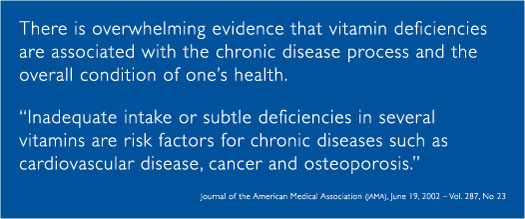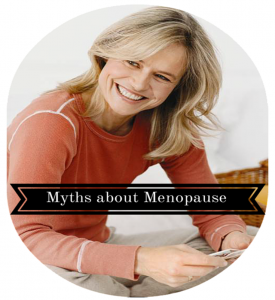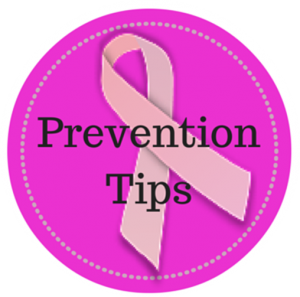
by admin | Apr 29, 2015 | Doctors Perspective
Innovative Directions in Health Offers Micronutrient Testing
What is Micronutrient Testing?
SpectraCell’s Micronutrient tests measure the function of 35 nutritional components including vitamins, antioxidants, minerals and amino acids within our white blood cells. Scientific evidence shows us that analyzing the white blood cells gives us the most accurate analysis of a body’s deficiencies.

Be Proactive, NOT Reactive
Achieve a higher level of wellness. Eating a balanced diet, exercising and taking a multivitamin is simply not enough. Each person’s body is unique in its own way. Due to the complexity of the human body, an individualized healthcare approach is the only way to guarantee optimal results.
Why test Micronutrients?
Nutrient status is a vital foundation of health. Each micronutrient plays an indispensable role in promoting optimal cell function. When some cells do not function at their best, the foundation of our health is compromised, setting the stage for the development of disease. Identifying and correcting nutritional deficiencies is an important step in the long-term maintenance of optimal health.
Vitamin deficiencies aren’t just a reflection of diet. Since we are all biochemically unique, nutrient deficiencies will vary from patient to patient, and do not necessarily correlate directly with nutrient intake, even among those with similar health conditions. Many factors beyond diet determine whether nutrient function is adequate. These include biochemical individuality, genetic predisposition, absorption and metabolism, age, disease conditions and medications.
What results will I see?
Lab results include an overview page with all deficiencies listed, numeric and graphic reports easily identifying deficiencies and repletion and supplementation recommendations, such as the example above.
Testing Includes:
VITAMINS:
Vitamin A
Vitamin B1
Vitamin B2
Vitamin B3
Vitamin B6
Vitamin B12
Biotin
Folate
Pantothenate
Vitamin C
Vitamin D
Vitamin K
MINERALS:
Calcium
Magnesium
Manganese
Zinc
Copper
AMINO ACIDS:
Asparagine
Glutamine
Serine
ANTIOXIDANT:
Alpha Lipoic Acid
Coenzyme Q10
Cysteine
Glutathione
Selenium
Vitamin E
SPECTROX™
for Total Antioxidant Function
IMMUNIDEX™
Immune Response Score
CARBOHYDRATE METABOLISM:
Chromium
Fructose Sensitivity
Glucose-Insulin Metabolism
FATTY ACIDS:
Oleic Acid
METABOLITES:
Choline
Inositol
Carnitine
How do I get tested?
Contact our office for more information or to schedule your labwork and appointment with Dr. Sinda for recommendations to help optimize your body’s function and metabolism.

by admin | Nov 18, 2014 | Doctors Perspective
Menopause is the end of your monthly period, but it’s not the end of your life.
Here’s the truth behind some common menopause myths.
All menopausal women suffer from bad hot flashes, night sweats and have trouble sleeping.
Not all women have these symptoms. Many can go through “the change” without significant symptoms.
Women gain a lot of weight after menopause.
Although many women do gain, it is not always a problem. Often a woman’s body composition changes; such as increases in body fat% and decreases in lean body mass. Follow a good exercise routine and diet to prevent weight gain during your middle years.
A woman’s sex life is over.
Women can have a normal testosterone level and can continue to enjoy sex life. If vaginal dryness is a problem, there are lubricants and bio-identical creams that can help.
Women will continue to have normal function of other organs if they are feeling good.
Actually, women begin to develop heart disease after menopause and exceed men in this problem around age 70. They also have more bone loss, which can end up in fractures. They need to have a physician who can prevent these problems in a natural way, rather than taking synthetic drug hormones.
Women who take good care of their bodies and minds can continue to enjoy life long after menopause. For more information to find out if you are in Menopause continue reading here or schedule a meeting with Dr. Sinda.

by admin | Nov 18, 2014 | Doctors Perspective
How do I know if I’m in menopause?
Menopause is defined as having no periods for 12 consecutive months. Menopause usually occurs around the age of 50. The most common symptoms of menopause are hot flashes and vaginal dryness. Your physician may request a FSH blood test as an elevated FSH serum level can confirm menopause.
Perimenopause occurs several years before and a year after menopause in which you will experience menstrual irregularities. Perimenopause often occurs between 45-55 years of age. Symptoms may include menstrual irregularities, hot flashes, night sweats, sleep disturbances, thinning of hair, vaginal dryness and mood fluctuations. Perimenopause can be a difficult time for many woman, as your hormone levels fluctuate often.
Information about menopause and perimenopause, causes of hormone imbalances and treatment can be found here.
If you are ready to take the next step and look into treatment options, fill out this form and we will contact you to set up a consultation and evaluation.

by admin | Oct 31, 2014 | Doctors Perspective
During Breast Cancer Awareness Month, we should not only focus on the cure but also on PREVENTION.
“An Ounce of Prevention is Worth a Pound of Cure” – Benjamin Franklin
Please share these Breast Cancer Prevention tips with your loved ones.
- Natural progesterone in a woman’s body prevents breast cancer. A large Johns Hopkins study showed a tenfold increase in cancer deaths in progesterone deficient women.
- Women with PMS or in menopause often have progesterone deficiency, which should be identified by blood tests and treated with natural progesterone. Artificial [drug] progesterone is chemically different from natural progesterone and actually increases the risk of breast cancer. It should be avoided.
- Breast feed, as long as possible. Your baby will be healthier and will have a higher IQ. You will be healthier, more relaxed and have less breast cancer.
- Green tea extract is one of the most health promoting supplements. As an anti-oxidant, it is 25 times stronger than vitamin C. It reduces silent inflammation, the root cause of many diseases. It prevents growth of breast and prostate cancer and even helps reduce cholesterol and body fat. Why not take some every day?
- Omega 3 fatty acids reduce inflammation in the body and can not only reduce heart disease, but have also been shown to reduce the risk of cancer such as breast and prostate cancer. Omega 3 intake can be increased by eating more deep sea fish and/or fish oil capsules.
- PMS is a cyclical problem, affecting women for 1-2 weeks before their periods. It not only causes irritability, breast soreness, bloating, cravings and weight gain, but also increases the risk of breast cancer. It is related to hormonal imbalance and is not a depressive disorder, which should be constant rather than cyclical. We have avoided anti-depressants and relieved suffering for most patients with natural hormone balance.
- If there is a family history of breast cancer (mother, aunts and siblings), consider getting genetic testing for BRCA1 and II gene abnormalities.
- If your risk of breast cancer is judged to be higher than normal, consider adding indole 3 carbinol (I3C) to your supplements.
- If you are having any hormonal symptoms such as hot flashes, night sweats, trouble sleeping, brain fog, vaginal dryness, lack of muscle tone, low libido, etc., see a physician who understands natural bio-identical hormones.
- Regular exercise reduces the risk of breast cancer, by about 25%, as well as the risk of most other diseases.
- Focus on the cruciferous vegetables (broccoli, Brussels sprouts, cabbage, cauliflower). They contain I3C which changes estrogen in to 2-hydroxyestrone, the ‘good’ estrogen.
- Think fiber (fruits, veggies, whole grain products). Fiber will bind toxins and estrogen as they drip into the intestine, and remove them from your body.
- Keep alcohol intake to a minimum. Red wine is a better choice, because it is full of anti-oxidants, it is an aromatase inhibitor and it has reserveratrol, which has anti-cancer activity.
- Scientific evidence suggests breast and nipple stimulation increases the secretion of oxytocin, which not only helps remove pent-up secretions from the breast ducts, but also fights breast cancer in several ways.
- Regularly examine your breasts, self exams can be an important way to find a breast cancer early, when it’s more likely to be treated successfully. The Five Steps of a Breast Self-Exam
- Fibrocystic breast disease is often associated with relatively low progesterone in relation to estrogen. The best way to manage this would be to administer natural progesterone in natural ways. This could also decrease the risk of breast cancer.
- Exposure to toxins should be minimized by all means. Start little by purchasing non-bleached coffee filters, paper, napkins, toilet tissue, tampons, etc. Daily exposure from can result in a lifetime exposure to dioxin that exceeds acceptable risks.
- Most Minnesotans are deficient in vitamin D because of long winters and sun avoidance in the summer. This may protect them against skin cancers, but increases the risk of many cancers including breast, prostate and colon, the risk of MS and other immune diseases, hypertension, diabetes, and death from cardio-vascular problems. Make sure you know your vitamin D status and your physician knows how to replace it adequately.
- Omega 6 fats (most vegetable oils) stimulate breast cancer if ingested with carbohydrates (inflammatory action) and inhibit it if taken in with proteins (anti-inflammatory action). If these oils are oxidized (rancid), which they become after prolonged heating or exposure to sun, they generate free radicals which promote cancer.
- Exercise is the best medicine. Post menopausal women make their estrogen mostly in the fat cells of the body, such as those in the breast. Exercise may lower the risk by decreasing circulating levels of estrogen in the body.
- High fiber intake not only lowers insulin, but it also has been shown to lower serum estrogen levels, a definite benefit in breast cancer prevention.
- Every effort should be made to consume only organically grown fruits and vegetables to avoid pesticide.
- Smoking is a cause of excessive free radical formation in the body. Smokers’ milk duct fluid often turns dark in color. A recent study in Japan found that women who smoked had a higher than normal incidence of breast cancer.
- Intake of anti-oxidants from supplements, fruits and vegetables should be increased to decrease free radical induced initiation and promotion of cancer.
- Eat as much fruits and vegetables as possible; but avoid some of the high-glycemic fruits (those that raise the blood sugar the highest) such as ripe bananas and pineapple.
- Keep your hormones in balance but use ONLY natural forms “bio-Identical hormones”, given in natural ways to replenish the body’s hormones as naturally as possible; i.e. avoid pellets, estrogen by mouth, etc. Seek a health care professional who focuses on prevention and bio-identical hormone therapy.
- If you have infertility problems, have your progesterone levels checked. If your progesterone level is consistently low, you are at a future risk for breast cancer. It should be watched and controlled by someone who understands natural bio-identical hormones. Progesterone should never be replaced by ‘progestin’ or ‘progestagen’, the artificial-synthetic and harmful ‘hormones’.
- Keep red meat (saturated) fats to a minimum and cut out processed meat such as bacon, pastrami, salami, sausage, hot dogs, pepperoni, etc. Choose fish, poultry, or beans instead. When you eat meat, choose lean cuts and eat smaller portions. Prepare meat by baking, broiling, or poaching at lower temperatures, rather than by frying in fat or broiling/grilling at excessively high temperatures.
- Avoid toxins. While working with household cleansers, protective gloves should be worn.
- Keep your body in motion! Excess body fat has been found to increase the risk for breast cancer by 30% to 50% . More body fat stores more toxins, and generates more free radicals to initiate breast cancer.

We feel a much greater emphasis should be placed on breast cancer prevention.
Read more tips and prevention strategies in the book, Keeping aBreast, Ways to PREVENT Breast Cancer, written by our founding physician, Dr. Khalid Mahmud.
This book can benefit women at any age to help protect against breast cancer.
If you are interested in preventing diseases and implementing Anti-Aging strategies in to your lifestyle, we can help! Schedule your consultation.

by admin | Oct 23, 2014 | Doctors Perspective
The most common complaint about taking fish oil is its aftertaste.
However, the benefits of taking a fish oil supplement far outweigh any of the side effects.
Here are some tips to avoid and prevent these unpleasant fishy burps:
- Take only pharmaceutical grade fish oil. Pharmaceutical grade is the purest form of fish oil, containing the highest concentrations of omega-3 fatty acid as well as DHA and EPA (essential fatty acids). It generally taste better and you get more benefits with fewer pills and less side effects. Look for one that will provide 2,000 – 4,000mg per day of total DHA/EPA.
- Start with a small dose. If you are just starting to take fish oil, take one pill per day. After a few weeks, increase dosage to two per day to feel more benefits. If your body is not used to fish oil, taking too many pills at once can cause an upset stomach.
- Take Fish Oil at the Beginning of a meal. Food traps the oil in the stomach and this will help to reduce side effects like fishy burps and buffer the odor. If you take the fish oil after a meal the oil does not mix as readily with the stomach’s contents, leading to more fishy burps and heartburn.
- Buy Enteric-coated fish oil. Enteric coating prevents the pill from dissolving in the stomach. The pill stays intact well into the intestines. Once fish oil is in the intestine, you can’t burp it back up.
- Freeze Fish Oil. If you are taking Enteric-Coated fish oil and still get fishy burps, store your fish oil in the Freezer. Swallowing the capsule while it is still frozen will slow the breakdown of the fish oil in the stomach to lessen burps.
Omega-3 fish oils are recommended to almost everyone to improve overall health. Fish oil supplements reduce inflammation in the body and can not only reduce heart disease, but have also been shown to reduce the risk of cancer such as breast cancer and prostate cancer.
Pharmaceutical grade fish oil can be purchased in our clinic. If you have tried all these tips and are still experience a side effect, please let us know or make an appointment with Dr. Sinda to go over your Anti-Aging supplement routine.

by admin | Oct 3, 2014 | Doctors Perspective
Why does Vitamin D come with Vitamin K in it now?
Research is now showing that the benefits of Vitamin D, in terms of maintaining bone strength and cardiovascular health are greatly enhanced when combined with Vitamin K2.
While Vitamin D improves your bone health by helping you absorb calcium, it is the Vitamin K2 that directs calcium to the bones and prevents it from being absorbed into the wrong areas; i.e. organs, joint spaces and arteries.
Vitamin K1 is found in green leafy vegetables so it is easy to get through the diet. However, Vitamin K2 originates from bacteria. I don’t know about you but I’m not eating bacteria! Therefore, it is important to take a quality Vitamin D with K2 in it. It is a little more spendy than plain Vitamin D but your bone health is worth it!
Do you know your Vitamin D level? It is a simple blood test. Ask your doctor to check it the next time you are in. Your test result will show whether you are getting enough Vitamin D from sun exposure and whether you may need to take a supplement.
Dr. Sinda recommends a Vitamin D screening test for all of our patients. To learn more about our programs, click here.








